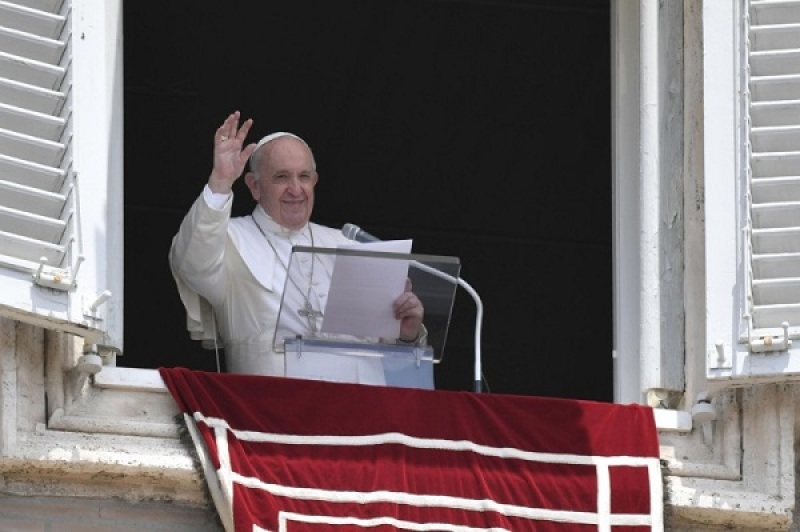
Archbishop Sviatoslav Shevchuk of the Ukranian Greek Catholic Church said during a media roundtable conducted online on Tuesday that Pope Francis' presence could ease the growing tensions between Russia and Ukraine.
Crux Now said Shevchuk believes a papal visit could put an end to the two country's almost eight-year conflict. Shevchuk revealed that the faithful desire "the pope goes to Ukraine" since they have a high regard for him as a "messenger of peace."
"We can't wait 10 years until all the conditions are there, all the pre-conditions," Shevchuk said.
"Of all religious leaders, in a majority Orthodox country the greatest moral authority is Pope Francis. They all say it: If the pope comes to Ukraine, the war would end. The pope is truly a messenger of peace," he stressed.
Shevchuk cited the pope's efforts the past months for Ukraine such as prayers for them in the "Ubi et Orbi," which is the traditional address given by the pontiff on Christmas Day. The archbishop also praised the pope for designating January 26 as a day of fasting and prayer for peace in Ukraine. He said the gestures were "strongly felt throughout the world."
Pope Francis has been asked to visit Ukraine for several years and it was only recently that Shevchuk indicated it might become a reality this year. Shevchuk disclosed that he was in the Vatican last November and have reiterated with the pope their invitation to visit Ukraine.
Ukrainian President Volodymyr Zelenskyy similarly invited the pope in February 2020 during his Vatican visit. Zelenskyy repeated the invitation in a private phone call with the pope last June.
"Gestures are very eloquent in themselves and visiting Ukraine would be very beautiful for all of humanity. A (papal visit would) conserve us all in the faith. We need tangible gestures," Shevchuk emphasized.
Christianity Daily reported last week that the United States Embassy in Ukraine have issued on January 26 a warning for American citizens to leave the country immediately in the face of "increased threats of Russian military action." The warning comes after the North Atlantic Treaty Organization and the U.S. raised concern over the "unusual" activity Russia has in the Ukranian border.
Russia has deployed 100,000 troops in the Ukrainian border and intelligence reports show another 30,000 are scheduled to be dropped in Belarus last month. However, the United Nations have dismissed the concerns, admonishing the U.S. for "whipping up tensions and provoking escalation."
Despite denying plans of an invasion, Russia continued to send troops to the Ukrainian border prompting Germany and France to step in for negotiations. French President Emmanuel Macron is in Moscow for a visit with hopes of mediating the situation. Germany announced on Monday it will deploy 350 troops to reinforce NATO's presence in Lithuania. While President Joe Biden have earlier ordered almost 3,000 troops for deployment in Poland and Romania.
Russia's last invasion of Ukraine happened in 2014 when they overtook Donetsk and Luhansk along with the southern Crimean Peninsula. The move happened after pro-Russian President Viktor Fedorovych Yanukovych was ousted by Ukranian citizens.


















